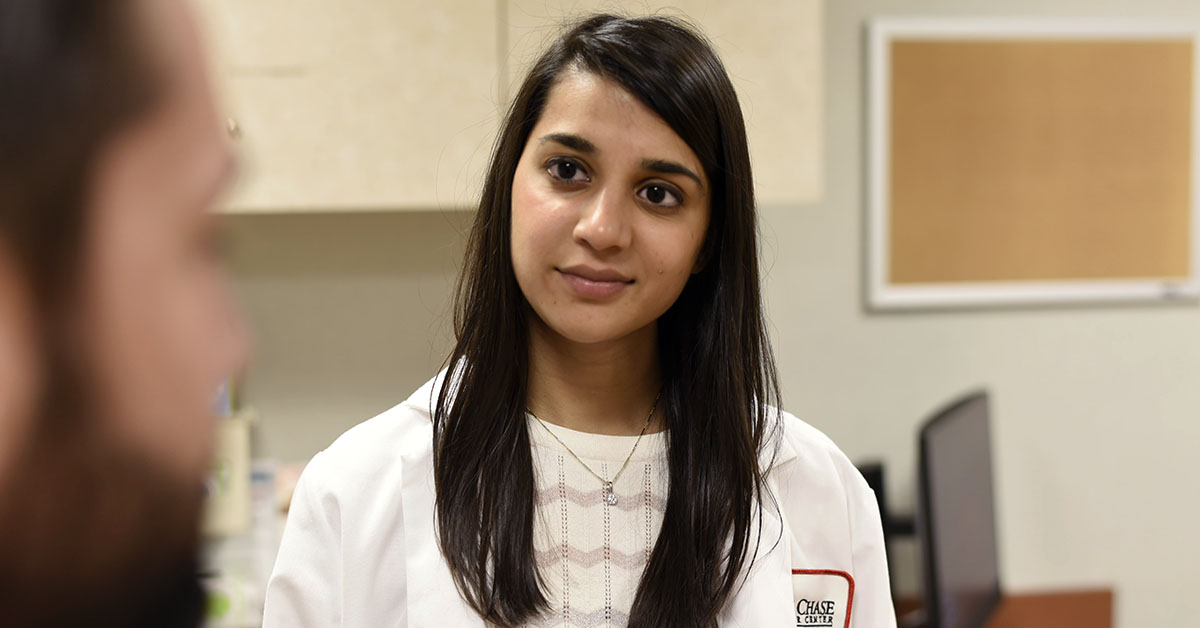
Three Reasons to Seek a Second Opinion for Lymphoma
-
When you are first diagnosed with cancer, it’s normal to want to start treatment quickly. However, it is often advised that individuals seek a second opinion before deciding on a treatment regimen.
Sometimes, a second opinion for a cancer diagnosis can give you valuable peace of mind that you’re on the right treatment path. Or it might provide you with a treatment option you didn’t know was available.
Second opinions are especially important for lymphoma—a type of cancer that begins in the infection-fighting cells of the immune system. This disease has many different types and subtypes that require nuanced treatment, and having access to all available treatment options allows you to have the best chance for a successful outcome.
Take a look at the three reasons why getting a second opinion for lymphoma is recommended:
1. An Accurate Diagnosis:
Lymphomas are categorized into two main types: Hodgkin lymphoma and non-Hodgkin lymphoma. And, within these categories are hundreds of subtypes that respond best to different therapies.
Pinpointing what specific subtype you have is best done by a hematopathologist (a medical professional who specializes in diagnosing blood cancers and disorders). These specialists are typically found at National Cancer Institute (NCI)-designated comprehensive cancer centers, and their input can have a strong impact on your treatment options.
“By having your diagnostic testing reviewed by a hematopathology team, you’re getting a second opinion from a highly specialized pathologist who can give you the most accurate diagnosis,” explained Shazia K. Nakhoda, MD, a hematologist/oncologist at Fox Chase Cancer Center.
And that diagnosis may be different from the one you first received.
“We know that a percentage of initial lymphoma diagnoses are determined to be incorrect when they are re-evaluated by a specialized hematopathology team,” Nakhoda said. “Because different types of lymphoma are treated differently, having the right diagnosis is very important.”
2. Additional Treatment Options:
Lymphoma is typically treated with chemotherapy, immunotherapy, or radiation. But knowing which treatment option is best for each patient requires a specialized understanding of the nuances of the many types of the disease.
Seeing a team of specialists can not only offer a more individualized treatment plan for patients, but it can also open the door to other, less commonly used treatments.
“For example, we can test a patient’s tissue to see if they’re sensitive to novel therapeutics,” Nakhoda said. “Also, some patients with aggressive or reoccurring lymphomas are candidates for stem cell transplants or cellular therapy, which are not available at every hospital.”
Getting a second opinion can also provide you with options for clinical trials, which offer patients additional treatment options that may not be available at other healthcare institutions.
3. A More Comprehensive, Cutting-edge Treatment Plan:
Physicians who focus solely on blood cancers aren’t just on top of the latest therapies—they’re also often conducting research themselves.
“With a disease like lymphoma, which has new therapies being trialed and approved all the time, it’s really helpful to be treated by a physician who is familiar with the latest advancements,” Nakhoda said.
Care at an NCI-designated comprehensive cancer center also provides you with a multidisciplinary approach to care. For example, at Fox Chase, our patient care teams meet regularly to come up with personalized treatment plans that will give their patients the best chances of success—even for difficult diagnoses.
“An aggressive lymphoma at a late stage is still curable,” Nakhoda said. “Even with certain low-grade lymphomas that aren’t technically curable, people can live many years with intermittent treatment.”
How to Make an Appointment for a Second Opinion
If you are interested in seeking a second opinion for your lymphoma diagnosis, it is best to start by talking to your current physician. Most doctors will encourage you to feel comfortable with your treatment plan and available options before moving forward. They may even be able to give you a referral.
If you’re unsure how to start the conversation, a simple and straightforward approach is best. Try saying: “I’m thinking of getting a second opinion. Can you recommend someone?”
If you would rather seek a second opinion on your own, you can start by researching NCI-designated comprehensive cancer centers in your area online or by asking friends, family members, or mentors for their help or recommendations.
Learn more about lymphoma diagnosis and treatment at Fox Chase Cancer Center
